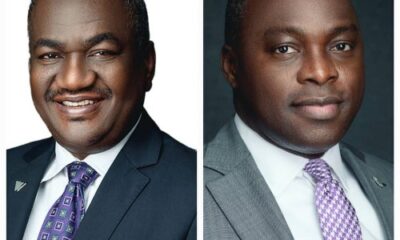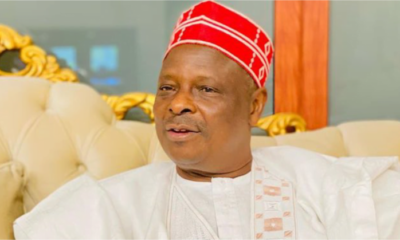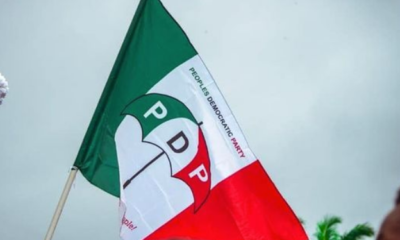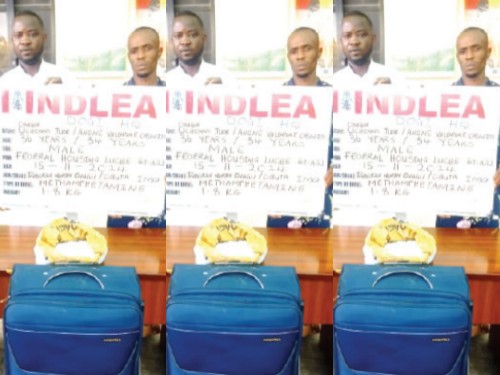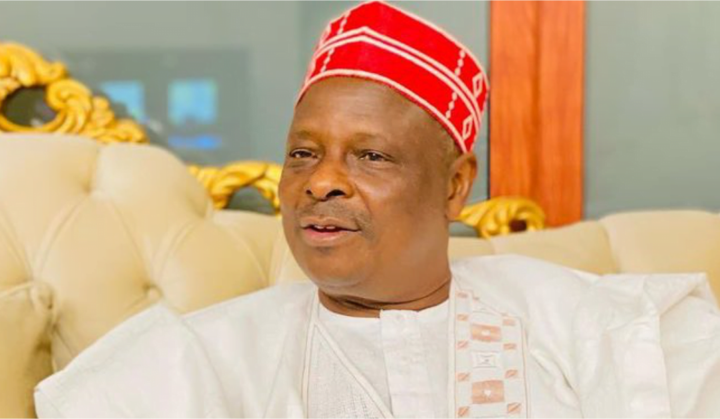Operatives of the National Drug Law Enforcement Agency (NDLEA) have thwarted attempts by drug syndicates to export large consignments of cocaine, methamphetamine, and opioids through the Murtala Muhammed International Airport in Ikeja, Lagos, and the Nnamdi Azikiwe International Airport in Abuja, to the United Kingdom, Italy, Turkey, and Qatar.
A total of 13 parcels of cocaine weighing 4.40kg, destined for the United Kingdom via Frankfurt on a Lufthansa Airlines flight, were intercepted by NDLEA officers at the export shed of the Lagos airport on November 5, 2024.
A statement issued on Sunday by the agency’s spokesperson, Femi Babafemi, revealed that a businessman linked to the consignment, Ekeocha Nelson, was tracked and arrested on November 8.
Babafemi also reported the arrest of another businessman, Adegbite Solomon, who attempted to export 7,800 pills of tramadol, among other drugs.
He said, “The bid by another businessman, Adegbite Solomon (aka Obama), to export 7,800 pills of tramadol, 180 tablets of Rohypnol, and 60 bottles of codeine to Italy was also foiled at the departure hall of the Lagos airport on Monday, November 11, when the NDLEA operatives arrested him after recovering the opioids concealed in food and other items while attempting to board an Ethiopian Airlines flight to Italy. He claimed to have travelled to Europe through the Mediterranean Sea and earned a living as a street beggar before delving into the logistics business.”
Babafemi further mentioned the arrest of another businessman, Anoke Roomy, who was caught with 1,100 pills of tramadol 225mg hidden in his luggage while attempting to board an Ethiopian Airlines flight to Istanbul, Turkey, at the Lagos airport on November 15.
He added, “Following credible intelligence, the NDLEA officers of the Directorate of Operations and General Investigation, and their counterparts from the FCT Command of the agency on Friday, November 15, raided a hotel room at the Federal Housing Authority estate, Lugbe, Abuja, where they arrested two suspects: Omeh Uchenna Jude, 36, and Anene Valentine Chigozie, 34. Recovered from them was 1.8kg methamphetamine, which they were preparing to travel with to Qatar.”
In another intelligence-led operation, Babafemi said a trans-border drug trafficker, Emmanuel Okeke, was arrested during an attempt to smuggle drugs to Ghana.
He said, “Officers of an NDLEA task force on Saturday, November 16, foiled the attempt by a trans-border trafficker, Emmanuel Okechukwu Okeke, to smuggle 50,000 pills of tramadol 225mg from Ghana into Lagos. The pills were concealed in the body compartments of a Toyota Hummer Bus belonging to the GUO Transport Company, driven by the suspect. The vehicle was intercepted at the Ijanikin area of the Lagos-Badagry Expressway while coming from Ghana.”
In Edo State, Babafemi reported the recovery of no fewer than 997kg of cannabis during raids in various parts of the state.
“While 680kg of cannabis and a Sienna bus marked FST-320 AE were seized at a bush path to the Oghada forest in Oghada, Orhionmwan LGA, 180.5kg of the same substance was recovered from a suspect, Cecilia Ibe, 31, at the Ofosu forest, Ovia South West LGA, and 136.5kg evacuated from a building in Otuo community, Owan East LGA on Thursday, November 14,” he added.
In Kwara State, Babafemi mentioned that NDLEA operatives arrested a suspect, Adio Sulaiman, with 120.8kg of cannabis and some litres of codeine at Gaa Odota in Ilorin West LGA.
“While Kelechi Obichere, 42, was nabbed with 75kg of cannabis at Eziobodo, Owerri West LGA, Imo State on Thursday, November 14, a total of 563.74 kilograms of the same psychoactive substance were recovered from a 60-year-old suspect, Anthony Anakabi, following his arrest at Iyalode, Iyana Church area of Ibadan, the Oyo State capital,” he concluded.

 BIG STORY4 days ago
BIG STORY4 days ago
 BIG STORY4 days ago
BIG STORY4 days ago
 BIG STORY4 days ago
BIG STORY4 days ago
 BIG STORY5 days ago
BIG STORY5 days ago
 BIG STORY3 days ago
BIG STORY3 days ago
 BIG STORY3 days ago
BIG STORY3 days ago
 BIG STORY4 days ago
BIG STORY4 days ago
 BIG STORY3 days ago
BIG STORY3 days ago







